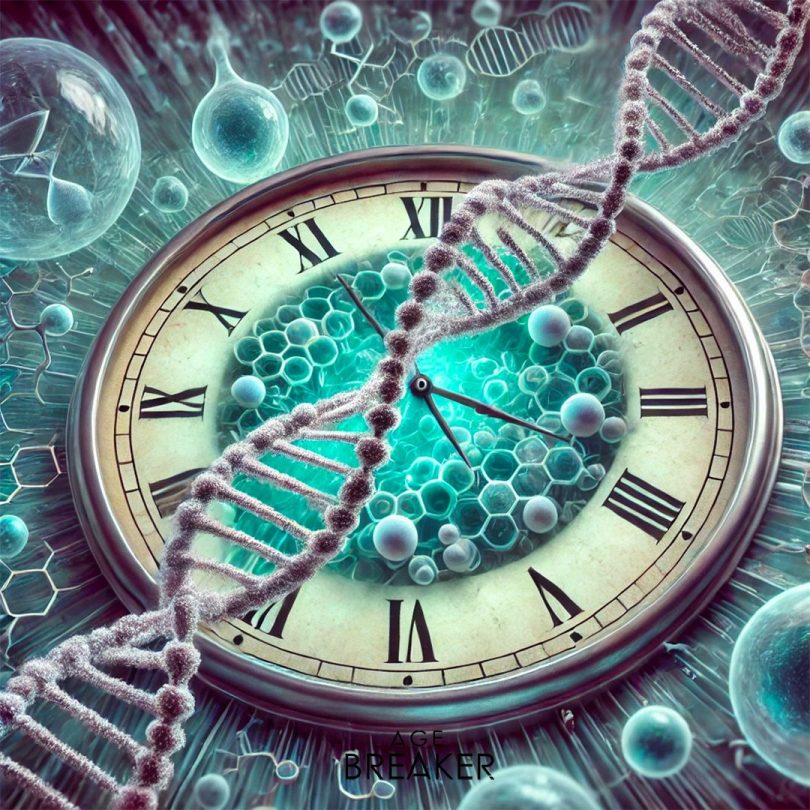Epigenetic age provides precise information on cellular aging. Based on epigenetic modifications of DNA, and in particular methylation, it enables highly accurate assessment of the risk of developing age-related diseases and accelerated aging.
Epigenetic age is determined by assessments of DNA methylation levels in the body, known as “epigenetic clocks”.
A recent study shows for the first time that sugar consumption is associated with epigenetic aging, which will inevitably lead to accelerated aging (1).
Conversely, and logically, a healthy diet is associated with a younger epigenetic age.
The predictive power of “epigenetic clocks” on aging, and their accuracy, offer the possibility of evaluating lifestyle interventions (diet, exercise, sleep…) that will enable us to take control of aging.
© AGE Breaker 11 2024
[Glycation is one of the major causes of aging. Resulting from the fixation of sugars on the proteins constituting the organism, glycation generates toxic compounds that cause cellular aging. Glycation is particularly involved in metabolic disorders, skin aging and cognitive decline.]
[AGE Breaker, patented nutritional supplements, based on rosmarinic acid, recognized by aging specialists around the world for their properties to reverse the effects of glycation.]
More on www.agebreaker.com
#agebreaker #glycation #antiaging #longevitymedicine #preventivemedicine #preventivehealth #skinaging #4pmedicine #advancedglycationendproducts
(1) : CHIU, Dorothy T., HAMLAT, Elissa June, ZHANG, Joshua, et al. Essential nutrients, added sugar intake, and epigenetic age in midlife Black and White women: NIMHD Social Epigenomics Program. JAMA Network Open, 2024, vol. 7, no 7, p. e2422749-e2422749.
Doi:10.1001/jamanetworkopen.2024.22749









